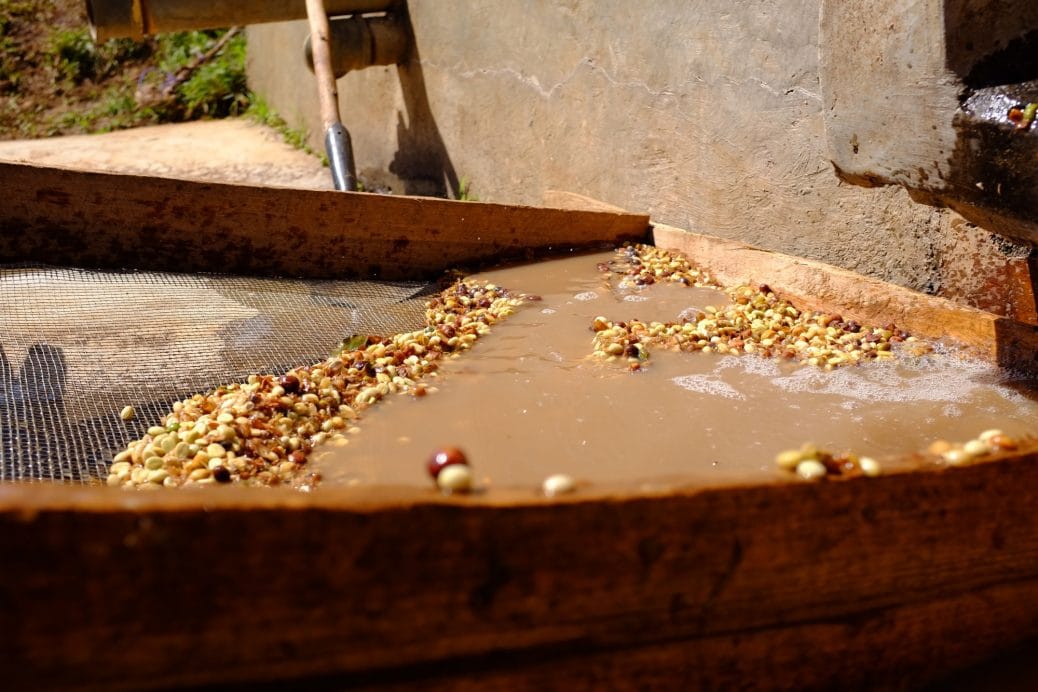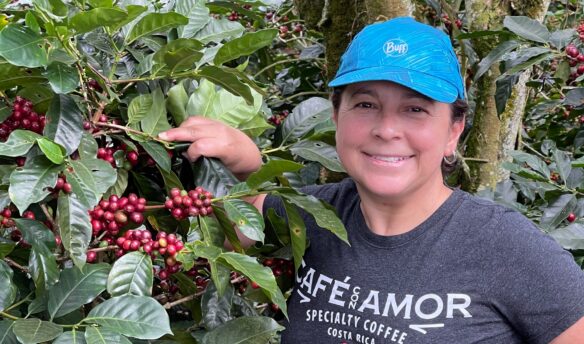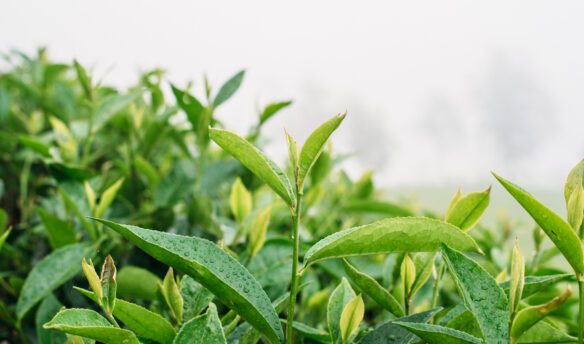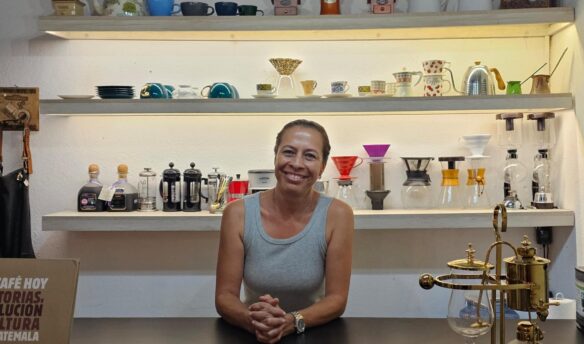Since November 2016, Emily McIntyre has been living in Ethiopia with her husband and five-year-old daughter, Eire. As part of their work with Catalyst Coffee Consulting, the McIntyres have been traveling around the country to partner with producers, mills, and processing/export professionals. Their efforts are focused on education, deepening relationships, and moving toward truly progressive Ethiopian coffee. Read more of her reports here.
[A]s we lurch over grey and rusty gravel we can look to our right, over scrubby greenery, scrawny cows, and round huts, and see spread below us the majestic green valley of Torre. We eventually enter the field—a broad expanse of acacia trees, bright green grass, and tiny bushes like bonsai trees—dotted with colorful figures of people staring, carrying burdens, and herding goats, all under the benevolent gaze of Lato Samalo mountain. Muddy tire tracks cross the field in several wavy ribbons. Children shout in astonished joy, “Ferengi! Ferengi!” (Foreigner!) and run alongside the vehicles, bare feet pumping against the green, green grass.
Sprawling at the base of Mount Lato Semalo, around 7,070 feet, the Semalo Pride Mill employs 200 laborers for receiving, washing, sorting, drying, and preparing coffees for transport. The mill is about twenty kilometers from Chelelektu village; technically classified as Gelana Abaya district, it borders Kochere district (the beautiful landmark of Reko Mountain is visible just beyond Lato Samalo) and lies within the coffee area we all know as Yirgacheffe.
(Photos: Emily McIntyre.)
This is Semalo Pride Mill’s second year in production, and we’ve been privileged to consult on many aspects of the project. Coffees from the 2017–18 harvest season are coming in with plenty of promise, including washed, sundried naturals, special prep lots, and honey process. (Yes, you read that correctly: honey process from Yirgacheffe.)
We have visited Semalo Pride Mill multiple times in the last couple years, each time marveling at the beauty of the area, the joy and reception in the laborers and management, and the hard work that makes the operation so special. This year we are implementing lots of new projects there, and have many more planned for 2018. These projects include experimenting with using floating tanks to remove low-density cherries before processing (regularly done in other countries but almost never in Ethiopia), building new drying tables to replace the traditional bamboo screens—which pose significant mold risk—with plastic, and training employees in consistent protocols for more reliable, repeatable quality lots.
We also recently cupped Pride Mill coffees with the management team and some American coffee buyers; it was the Ethiopians’ first time cupping, and a magical experience. They have welcomed every bit of input we can bring and communicated their excitement to have the chance to do progressive work in Ethiopian coffee processing producing better and better results.
More posts from Emily:















